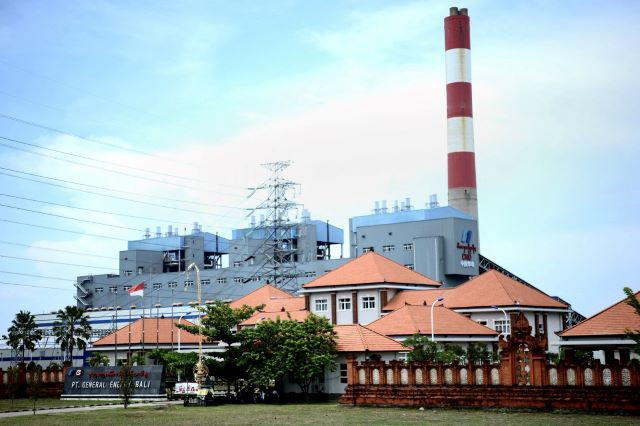Go green today, live to greet tomorrow
Mankind lives as if there is no tomorrow
Change Size

M
ankind lives as if there is no tomorrow. That is not very startling. Likewise, unsurprisingly, tomorrow always comes. However, it would be truly astonishing if tomorrow didn’t come.
This is not a philosophical issue but an ecological one. Ever since the Industrial Revolution at least, man’s economic reach has been defined — and defiled — by his ability to exploit nature. Foolishly, he has believed that he is capable of mastery over nature.
But nature can never be mastered: it can only be robbed. And nature is plentiful enough to be forgiving — till it runs out of patience one day and throws man back into the abyss of ecological time. Tomorrow vanishes forever.
The summit of world leaders in Rio de Janeiro last month revisited that threat of human extinction when it urged us to treat our future — or lack of it — with some urgency. Eloquently and forcefully, President Susilo Bambang Yudhoyono asked countries to switch from the greed economics to green.
He has some credibility to take the moral and ecological high ground because Indonesia has stood for pro-environment policies ever since it hosted the 2007 UN Climate Conference in Bali.
There are a number of reasons why Indonesia’s Rio initiative should be. The exploitation of natural resources has reached an unconscionable rate that may have exceeded the earth’s capacity to regenerate itself. Decades of carbon emissions have caused global warming and climate change.
Take Indonesia itself. The temperature here has risen by 0.3 degrees Celsius since 1990, and this trend is expected to continue. According to one assessment, an increase in temperature by 2.0 degrees Celsius could reduce the crop yield by 4.3 percent. That is a recipe for disaster in an agricultural country.
Simultaneously, Indonesia is predicted to have 2-3 percent more rainfall but fewer rainy days each year. This unnatural combination will make its rural areas more vulnerable to flooding and landslides. A rise in sea levels is another risk. Since about 40 million Indonesians live within 10 meters of the average sea level, that rise could make their lives and livelihoods precarious.
Between the dismal future and a recoverable environment stands the green economy.
The country enjoys the biodiversity to make that economy possible. Forests cover almost 70 percent of the land and are home to 12 percent of the world’s mammals, 16 percent of the world’s reptiles and amphibians, 17 percent of birds, 25 percent of fish species and more than 38,000 of plant species. These are treasures by most national measures.
On the policy front, it is gratifying to see that Indonesia’s long-term development plans are informed by a keen sense of environmental sustainability. These plans form the political basis of a green economy.
For example, by 2025, Indonesia aims to have an economic structure 55 percent of which will be supported by the tertiary sector, 36 percent by the secondary sector and the remainder by the primary sector. To meet this target, the government plans to downstream the primary sector and to add more value in the mining, forestry, agricultural and fisheries sectors. This is the green economy at work.
Jakarta has also implemented a moratorium on new licenses for exploitation of primary forests and peat land. The One Billion Indonesian Trees for the World (OBIT) program has caused 3.2 billion trees to be planted till now.
Also, laws permanently protect 35 percent of our tropical rainforest. The deforestation rate has decreased from 3.5 million hectares a year to less than half-a-million hectares a year over a decade.
When it is used to fight for the environment, technology can be a great force multiplier. Hybrid cars, energy-efficient lighting, clean coal technology and solar panels are among the innovations that will make the economy greener. These technologies may be costly at first, but like others, their cost can be expected to go down.
Indeed, ultimately it is the mindset of Indonesians that will determine whether the green economy flourishes in this country. We need to green our minds.
What I mean by that is the ability to look at nature, not only as a source of profit or an aesthetic luxury, but as the tapestry of physical existence from which our lives draw solace and meaning.
If nature exists only for profit, it can be stolen from. If nature is there only to beautify the world, it will mean very little to those for whom a full stomach comes long before dazzled eyes. In reality, nature forms the material backdrop for the pursuit of the full range of human activities, from farming to poetry. A green mind is imbued with this holistic sense of ecology, with an almost sublime sense of the intrinsic value of the environment.
Children, who have no more desire to profit from the soil than to use what it gives up willingly, are filled with just this sense of wonder. As they grow up and enter the cruel but necessary world of adult competition, they lose their easy but profound sense of the place of nature. Nature does not leave them: they leave nature for the machine, urban blight and polluted skies.
If the green economy is to survive, it will have to be sustained by the loving and trusting hands of children as they embark on life’s journey with the environment as their companion.
What we as adults can do is to tell our children that it is all right to trust nature, to think of the environment as a good in itself.
That way, in Indonesia as elsewhere, there will be a tomorrow. And that dawn will be filled by tomorrow’s generation.
We shall stand by the road of history and cheer the children. It will be a green cheer.
The writer is chairman of the Indonesian Renewable Energy Society.









